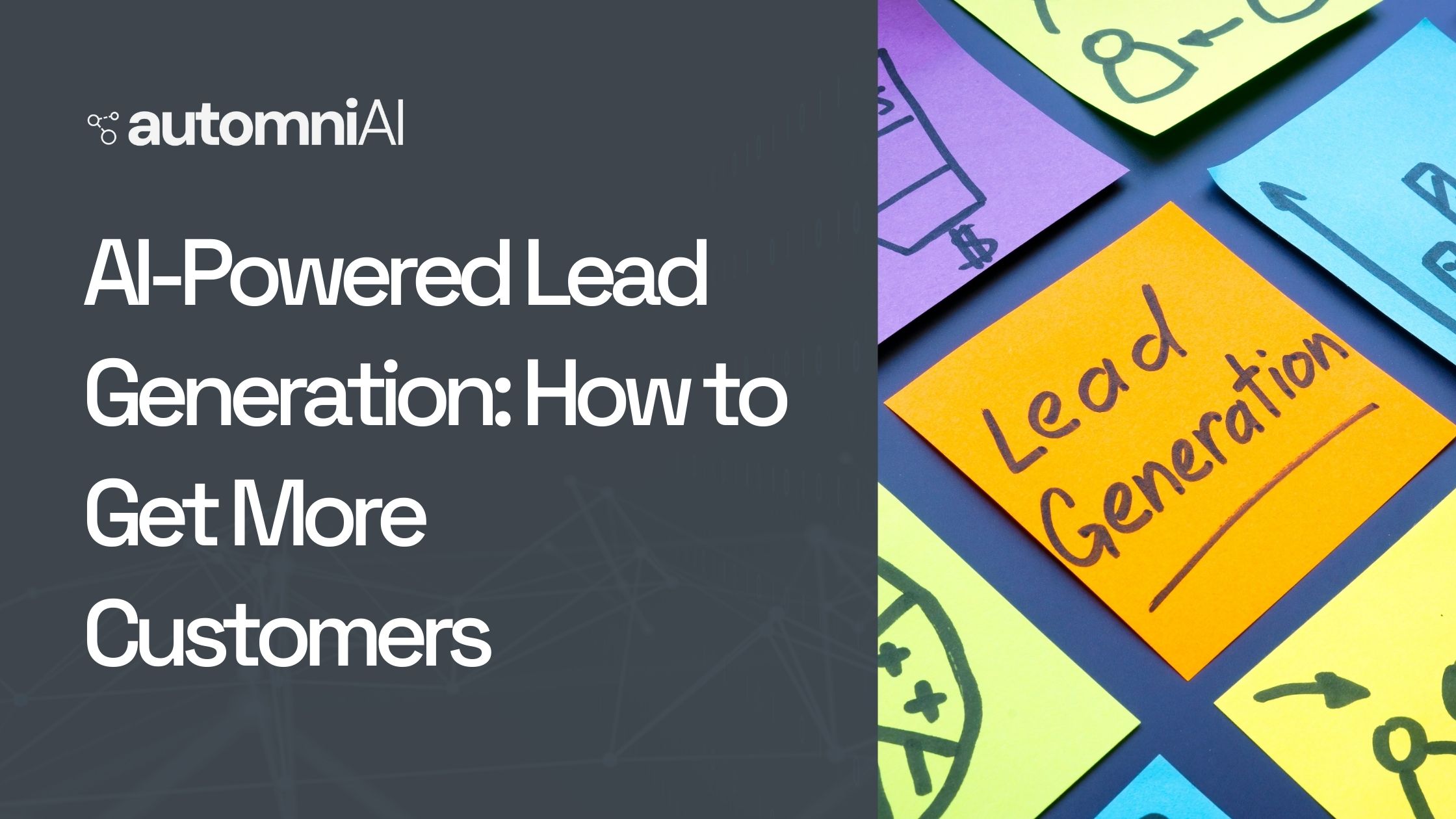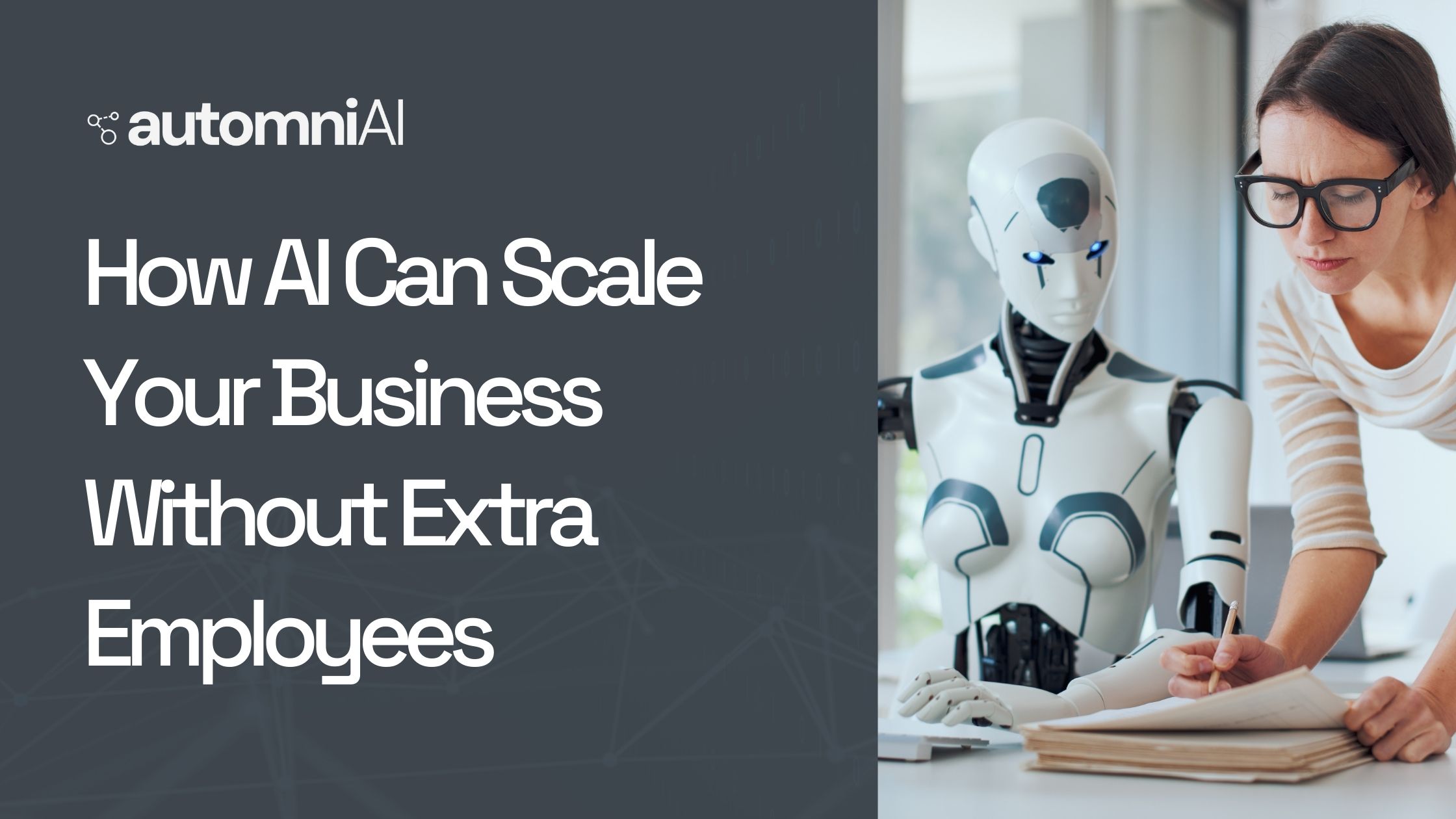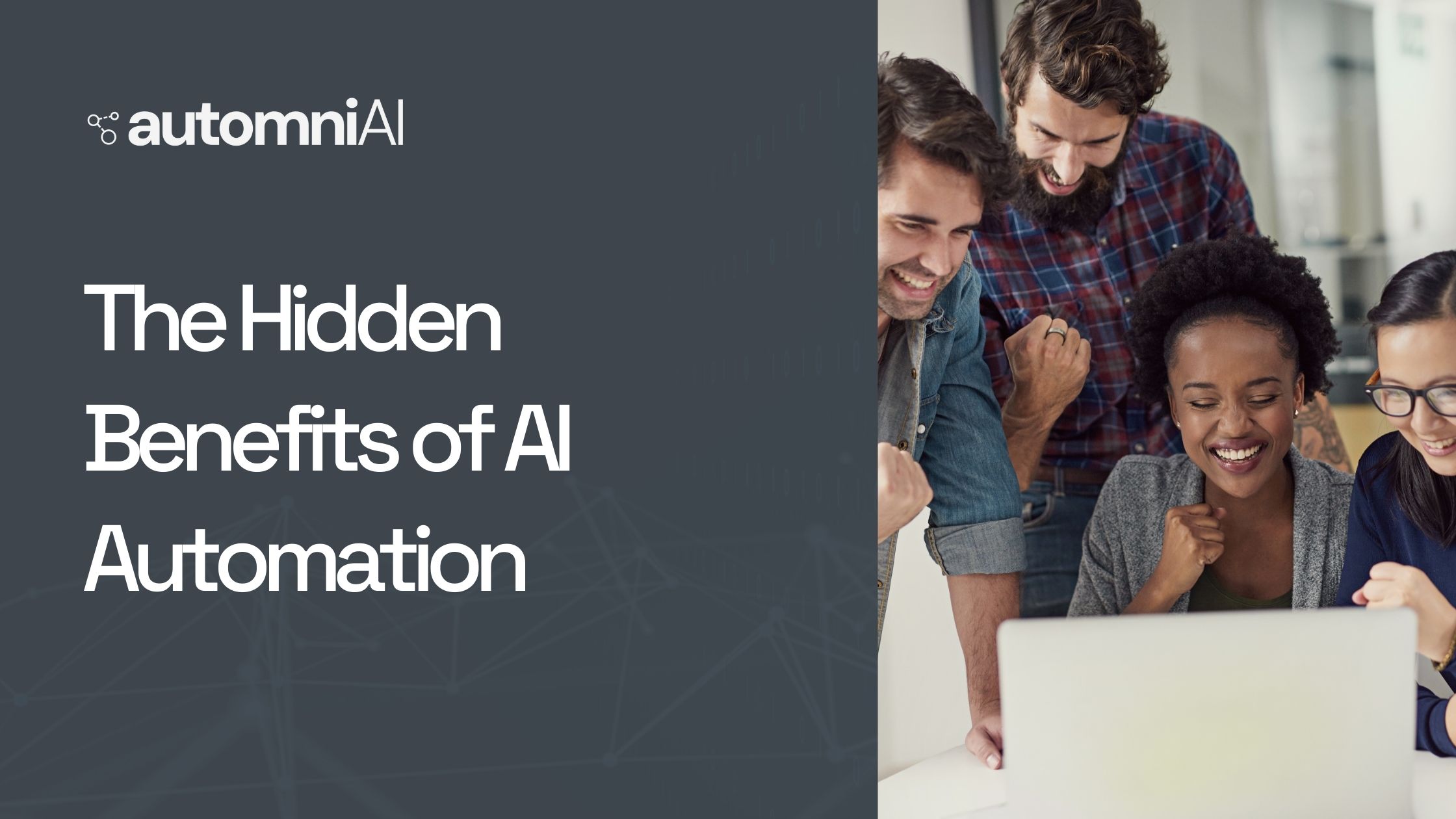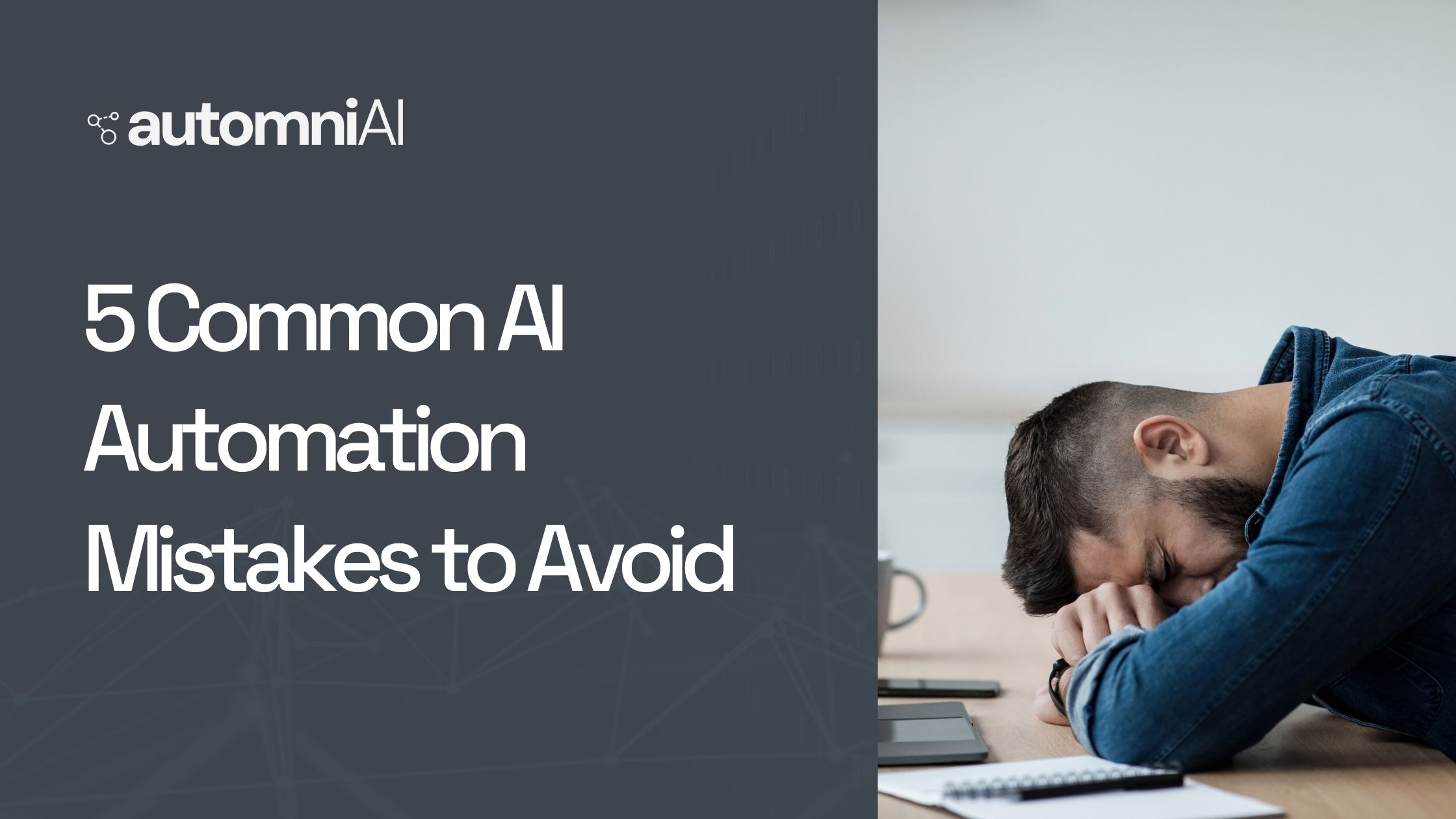The idea of scaling a business usually comes with the assumption that you need to…

AI-Powered Lead Generation: How to Get More Customers
In today’s digital world, businesses need more than just traditional marketing to attract and retain customers. AI-powered lead generation is changing the game by making customer acquisition smarter, faster, and more efficient. But what exactly is AI-powered lead generation?
AI-driven lead generation uses artificial intelligence to identify, attract, and engage potential customers. It automates repetitive tasks, analyzes massive datasets, and personalizes interactions, ensuring businesses target the right audience at the right time. With AI, companies can optimize their marketing strategies, improve conversion rates, and grow their customer base.
Let’s dive deeper into how AI is revolutionizing lead generation and how you can leverage it to get more customers.
The Role of AI in Modern Lead Generation
AI is transforming traditional lead generation by automating tedious processes and providing data-driven insights. Businesses no longer have to rely on outdated cold-calling techniques or random outreach. Instead, AI helps refine targeting strategies, ensuring marketing efforts reach people who are genuinely interested.
Key AI Contributions to Lead Generation:
- Automated Data Analysis: AI processes customer data at scale, identifying potential leads based on online behavior.
- Behavior Prediction: AI can predict which prospects are most likely to convert, allowing sales teams to prioritize high-value leads.
- Personalization: AI tailors marketing messages to individual preferences, making communication more relevant and effective.
- Automation: AI-driven tools handle lead nurturing, email marketing, and social media interactions, saving time and resources.
With AI, businesses can streamline customer acquisition efforts and maximize ROI without unnecessary manual work.
Benefits of AI-Powered Lead Generation
Implementing AI in lead generation offers numerous advantages that can significantly enhance a business’s marketing efforts.
1. Improved Efficiency and Accuracy
AI eliminates human errors and automates time-consuming tasks, allowing businesses to generate leads more efficiently. Instead of manually sifting through data, AI algorithms analyze and sort prospects based on predefined criteria.
2. Personalized Marketing Campaigns
AI enables hyper-personalized marketing strategies by analyzing user data and tailoring content accordingly. Whether it’s email campaigns, social media ads, or website interactions, AI ensures that every touchpoint is relevant to the customer’s interests.
3. Enhanced Customer Targeting
AI helps businesses target the right audience by identifying behavioral patterns. By leveraging predictive analytics, AI determines which leads are most likely to convert, allowing businesses to focus their efforts on high-value prospects.
4. Data-Driven Decision-Making
AI provides actionable insights based on data analysis, helping businesses make informed decisions. From identifying successful marketing strategies to predicting customer trends, AI ensures data-driven growth.
By leveraging AI, businesses can refine their lead generation process, increase conversions, and maximize marketing efficiency.
AI Tools for Lead Generation
AI-driven lead generation relies on various tools that automate and optimize customer acquisition. Here are some of the most powerful AI tools:
1. Chatbots and Virtual Assistants
AI chatbots engage with website visitors in real time, answering questions and collecting lead information. Virtual assistants like Drift, Intercom, and HubSpot help businesses automate customer interactions and nurture leads.
2. AI-Driven CRM Systems
Customer Relationship Management (CRM) tools like Salesforce, HubSpot, and Zoho CRM use AI to track and manage leads. These platforms analyze customer data, predict sales trends, and suggest personalized outreach strategies.
3. Predictive Analytics and Data Mining
AI-powered predictive analytics tools such as Marketo and Pardot help businesses analyze customer behavior, anticipate needs, and forecast future buying patterns.
4. Automated Email Marketing Platforms
AI-driven email marketing tools like Mailchimp, ActiveCampaign, and Sendinblue personalize email content, optimize send times, and automate follow-ups based on user engagement.
By integrating these AI tools, businesses can enhance their lead generation strategies and improve customer engagement.
How to Implement AI in Lead Generation
AI implementation requires strategic planning to maximize effectiveness. Follow these steps to successfully integrate AI into your lead generation process:
Step 1: Identify the Right AI Tools
Choose AI solutions that align with your business needs. Whether it’s chatbots, CRM systems, or predictive analytics, select tools that complement your existing marketing strategies.
Step 2: Integrate AI with Existing Strategies
AI should work alongside your current lead generation efforts. Ensure seamless integration with your CRM, website, email marketing, and social media platforms.
Step 3: Train Teams for AI Adoption
Educate your marketing and sales teams on AI tools and how to leverage them effectively. Encourage collaboration between AI-powered automation and human expertise for optimal results.
By following these steps, businesses can harness AI’s power to attract, engage, and convert more leads efficiently.
AI-Powered Lead Scoring and Segmentation
Lead scoring and segmentation are essential for prioritizing high-value leads and targeting them with personalized marketing efforts. AI enhances these processes by analyzing vast datasets and identifying patterns that human teams might overlook.
1. AI-Driven Lead Scoring
AI-powered lead scoring assigns value to each prospect based on their likelihood to convert. By analyzing user interactions, demographics, and online behavior, AI determines which leads should be prioritized.
- Behavioral Analysis: AI assesses website visits, email engagement, and social media activity to score leads.
- Predictive Analytics: AI predicts future actions based on past behaviors, helping sales teams focus on high-converting leads.
- Automated Lead Prioritization: AI ensures that sales teams focus on the most promising leads, reducing wasted efforts.
2. AI-Powered Customer Segmentation
AI segments customers based on their behavior, interests, and purchasing habits. This allows businesses to tailor their messaging and offers more effectively.
- Demographic Segmentation: AI categorizes leads by age, location, gender, and occupation.
- Behavioral Segmentation: AI groups leads based on online interactions and engagement levels.
- Psychographic Segmentation: AI understands customer interests, values, and lifestyles for deeper personalization.
By leveraging AI for lead scoring and segmentation, businesses can optimize their marketing strategies and boost conversion rates.
Chatbots and Conversational AI in Lead Generation
Chatbots and conversational AI play a crucial role in engaging website visitors, answering inquiries, and nurturing leads automatically. These AI-powered tools ensure 24/7 customer interaction without requiring human intervention.
1. How Chatbots Improve Lead Generation
- Instant Engagement: AI chatbots provide immediate responses, reducing bounce rates and improving user experience.
- Lead Qualification: Chatbots ask relevant questions and categorize leads based on their responses.
- Seamless Integration: Chatbots integrate with CRM systems to store lead data for further nurturing.
2. Best AI Chatbots for Lead Generation
- Drift: AI-powered chatbots that enhance customer engagement and automate conversations.
- Intercom: A chatbot that qualifies leads and routes them to the right sales team members.
- HubSpot Chatbot: Automates lead capture and integrates with marketing campaigns.
By implementing chatbots, businesses can improve lead conversion rates while reducing response times and manual workload.
AI and Predictive Analytics in Lead Generation
Predictive analytics is one of AI’s most powerful capabilities, allowing businesses to forecast customer behavior and refine their lead generation strategies.
1. Understanding Predictive Analytics
Predictive analytics uses AI to analyze past customer interactions and predict future actions. It helps businesses identify which leads are most likely to convert and when.
2. Benefits of Predictive Analytics in Lead Generation
- Accurate Customer Insights: AI evaluates data from multiple touchpoints to predict customer needs.
- Better Sales Forecasting: Businesses can anticipate demand and allocate resources effectively.
- Automated Decision-Making: AI-driven insights help marketers optimize campaigns in real time.
By utilizing predictive analytics, businesses can proactively engage with potential customers and enhance lead conversion rates.
AI-Driven Content Marketing for Lead Generation
Content marketing plays a critical role in attracting leads, and AI enhances this process by optimizing content creation, distribution, and personalization.
1. AI-Powered Content Personalization
AI tailors content to each user’s preferences, ensuring that they receive relevant information based on their behavior and interests.
- Dynamic Content Recommendations: AI suggests blog posts, articles, and videos based on user interactions.
- Automated Content Creation: AI tools like Jasper and Copy.ai generate high-quality blog posts and social media content.
2. AI in SEO and Content Optimization
AI-driven tools enhance SEO by analyzing search trends and optimizing content accordingly.
- Keyword Analysis: AI tools like Surfer SEO identify high-ranking keywords for better visibility.
- Content Structuring: AI optimizes headlines, meta descriptions, and readability for search engines.
- Performance Tracking: AI monitors content engagement and suggests improvements.
With AI, businesses can create highly targeted content that resonates with their audience and drives more leads.
Automating Email Marketing with AI
Email marketing remains one of the most effective lead generation strategies, and AI enhances it by automating and personalizing email campaigns.
1. AI-Driven Email Segmentation
AI segments email lists based on user preferences, behaviors, and engagement levels.
- Behavior-Based Segmentation: AI groups recipients based on past interactions.
- Interest-Based Segmentation: AI categorizes contacts based on content engagement.
- Predictive Segmentation: AI predicts which leads are ready to convert and prioritizes outreach.
2. Automated Email Follow-Ups
AI automates email sequences, ensuring timely follow-ups and improved engagement.
- Smart Scheduling: AI determines the best time to send emails for higher open rates.
- Personalized Email Content: AI customizes subject lines and messages for each recipient.
- Automated Lead Nurturing: AI ensures that prospects receive relevant content at different stages of the buyer’s journey.
By incorporating AI into email marketing, businesses can boost engagement and drive more conversions.
AI in Social Media Lead Generation
Social media platforms are a goldmine for lead generation, and AI enhances targeting, engagement, and ad optimization.
1. AI-Based Social Listening
AI monitors social media conversations, identifying potential leads based on discussions and interests.
- Brand Mentions: AI tracks mentions of your brand across platforms.
- Competitor Analysis: AI evaluates competitor performance to identify new opportunities.
- Customer Sentiment Analysis: AI determines public perception and engagement trends.
2. AI-Driven Social Media Ads
AI optimizes paid ads for better reach and conversions.
- Ad Targeting Optimization: AI identifies the best audience for your ads.
- Automated A/B Testing: AI tests different ad creatives and selects the best-performing versions.
- Budget Optimization: AI ensures cost-effective ad spending for maximum ROI.
With AI-powered social media strategies, businesses can enhance their online presence and generate high-quality leads.
Challenges and Risks of AI in Lead Generation
Despite its advantages, AI-powered lead generation comes with certain challenges and risks.
1. Data Privacy Concerns
AI relies on customer data, raising concerns about privacy and compliance with regulations like GDPR and CCPA.
2. Over-Reliance on Automation
Overusing AI can lead to impersonal interactions, making customers feel disconnected. Businesses must balance AI automation with human touchpoints.
3. Ensuring AI Aligns with Business Goals
AI should complement business objectives rather than replace human decision-making. Organizations must continuously monitor AI performance and adjust strategies accordingly.
Addressing these challenges will help businesses maximize the benefits of AI-powered lead generation.
Future of AI in Lead Generation
AI continues to evolve, offering new possibilities for lead generation. Emerging trends include:
- Voice Search Optimization: AI-driven voice assistants like Alexa and Siri influencing customer searches.
- AI-Powered Video Marketing: Personalized video content for enhanced engagement.
- Advanced Predictive Modeling: Improved forecasting capabilities for better lead nurturing.
As AI technology advances, businesses that adapt will stay ahead of the competition in customer acquisition.
AI-powered lead generation is revolutionizing how businesses attract, engage, and convert customers. From chatbots and predictive analytics to automated email marketing and social media optimization, AI enhances every aspect of the lead generation process.
By integrating AI-driven tools, businesses can improve efficiency, increase conversion rates, and personalize customer interactions. However, it’s essential to balance AI automation with human touchpoints to maintain authenticity and customer trust.
Embrace AI-powered lead generation today and watch your business thrive in the digital age!
FAQs
1. How does AI help in lead generation?
AI automates data analysis, predicts customer behavior, personalizes marketing efforts, and improves lead qualification processes.
2. What are the best AI tools for lead generation?
Top AI tools include HubSpot, Salesforce, Drift, Intercom, Mailchimp, and Surfer SEO for various lead generation tasks.
3. Can AI replace human sales teams?
No, AI enhances sales efforts by automating repetitive tasks, but human interaction remains crucial for relationship-building and closing deals.
4. Is AI-powered lead generation expensive?
While some AI tools require investment, the long-term benefits, such as increased efficiency and higher conversions, outweigh the costs.
5. How can small businesses use AI for lead generation?
Small businesses can leverage AI-powered chatbots, email automation, and social media analytics to optimize lead generation without a large budget.




Comments (0)